North and Midlands 'most likely to lose out to robots'
- Published
- comments
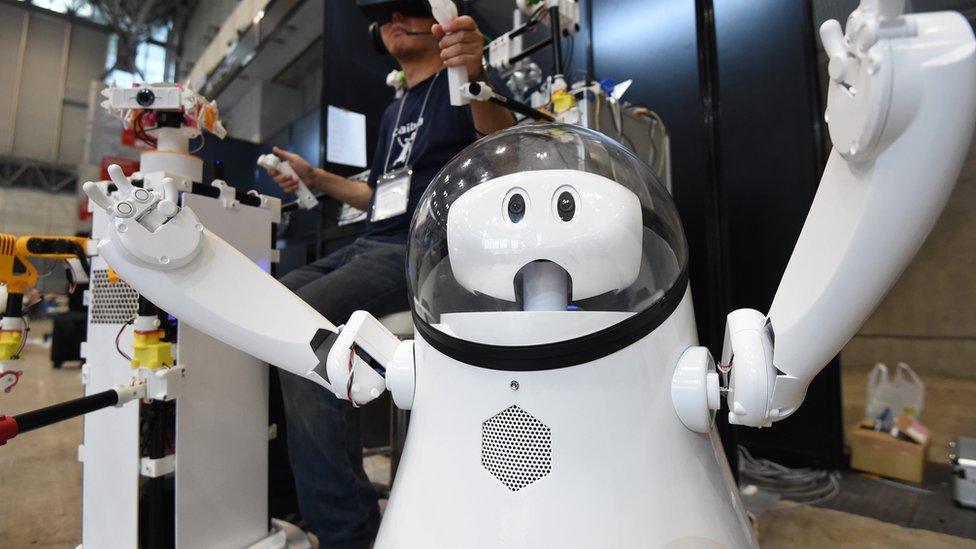
Robots are predicted to have replaced millions of jobs within 12 years
Workers in northern England and the Midlands are most at risk of losing their jobs to robots, a report claims.
The Centre for Cities estimates that by 2030 nine areas could lose more than a quarter of jobs to automation and artificial intelligence (AI).
Roles in shops, administration and warehouses are the most at risk.
The government has said it is committed to helping people secure "the jobs of tomorrow" with a national retraining scheme.
And it said developing AI could create a net increase of 80,000 jobs a year , externalin countries with a population the size of the UK.
The Centre for Cities claims that by 2030 more than three million jobs across Great Britain could be lost as robots and AI technology are used more widely in the workplace.
Robot automation will "take 800 million jobs by 2030"
The report predicts towns and cities with a "lower share of high-skilled jobs", such as Mansfield, Sunderland and Wakefield, face losing nearly 30% of their current roles.
The think tank said sales assistants and cashiers accounted for about one in every six of the jobs at risk in Mansfield, while one in 10 posts at risk were in "elementary storage" roles such as warehouses, both of which are predicted to see big changes from robotics and AI.
In Sunderland, almost one in five jobs at risk are in retail and one in eight are in customer services.

Areas with more higher-skilled jobs such as Oxford, Cambridge and Reading may also lose up to 15% of their current positions.
The rise of messenger bots to handle customer service and self-service checkouts in supermarkets are examples of where automation is already having an impact, the think tank said.

Andrew Carter, chief executive of Centre for Cities, said robots could "compound" the north-south divide.
"Automation and globalisation will bring huge opportunities, but there is also a real risk that many people and places will lose out," he said.
"We need to reform the education system to give young people the skills to thrive in the future, and we also need greater investment in lifelong learning to help adults adapt to the changing labour market."
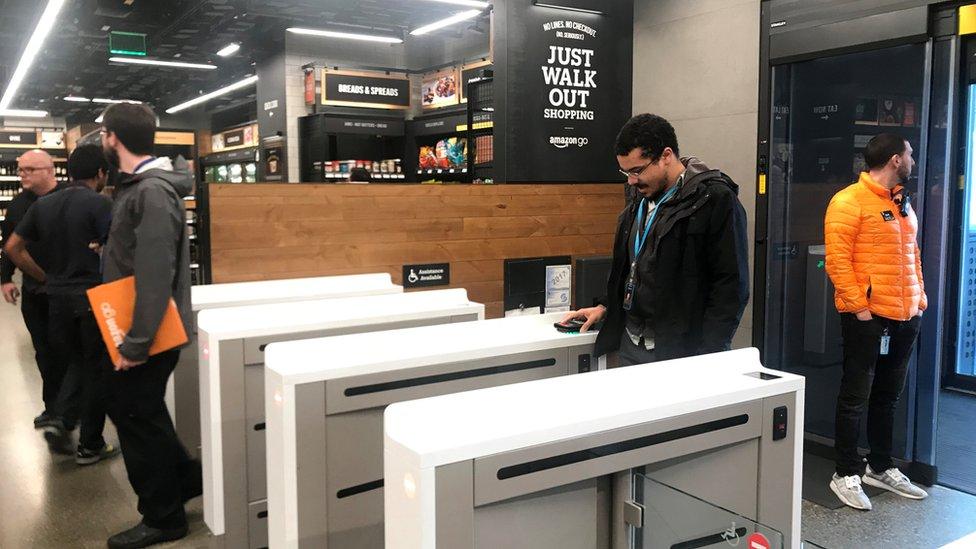
Amazon has opened a supermarket with no checkout staff at all
Russell Jones, chairman of the Mansfield 2020 business group, said the town was already adapting to automation and was not going to suffer the losses predicted in the report.
"Jobs being automated has been happening in Mansfield for the past 20 years," he said.
"That is why we've been building a local economy based on high quality and high-skilled jobs. Travel between junction 27 and 29 on the M1 and you'll see a vibrant mix of new housing and commercial estates.
"Our future will be somewhat different to the picture portrayed in this report."
Prime Minister Theresa May has said the government is committed to helping "people secure the jobs of tomorrow", external, with plans already in place to create a new national retraining scheme to help workers develop new skills.
- Published29 January 2018
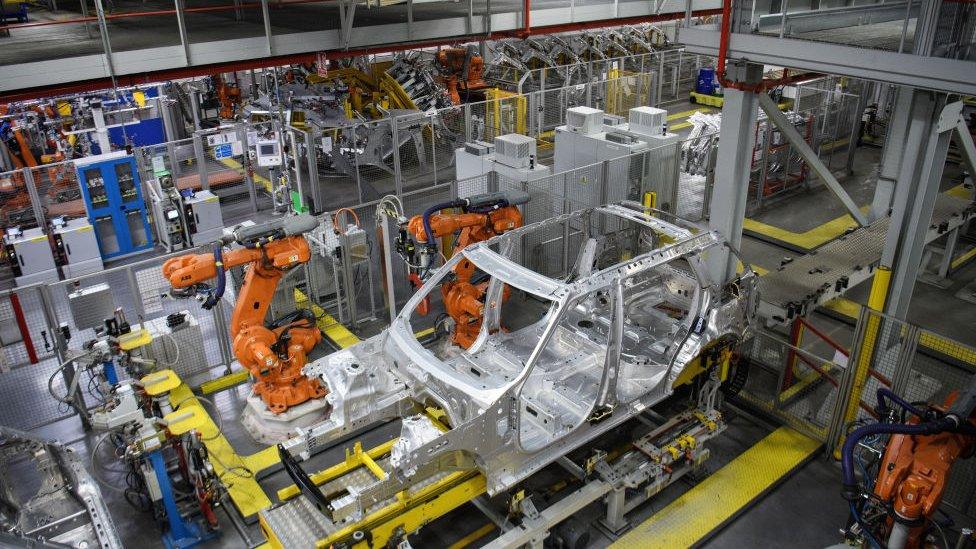
- Published22 January 2018
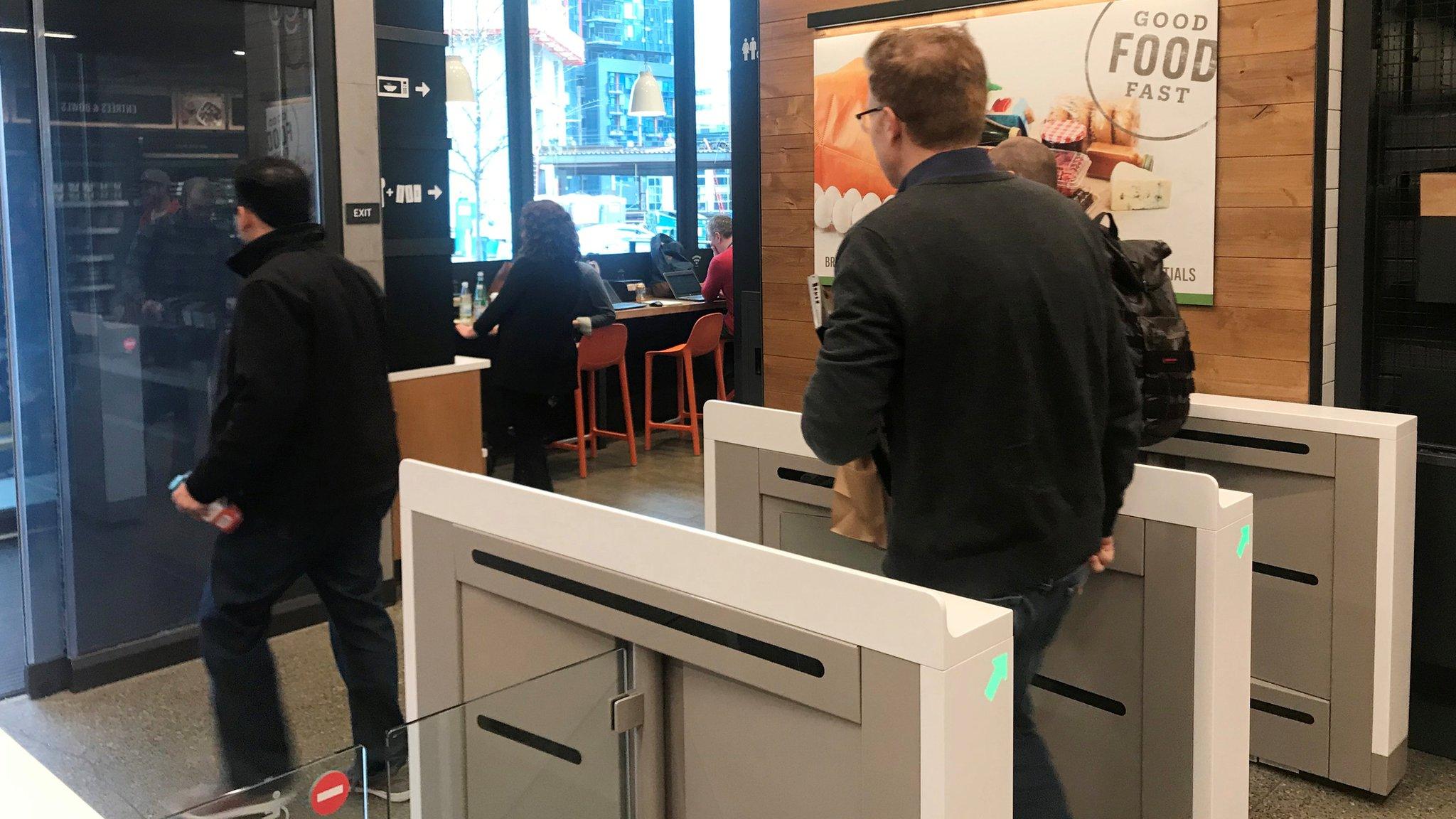
- Published11 September 2015

- Published21 November 2017
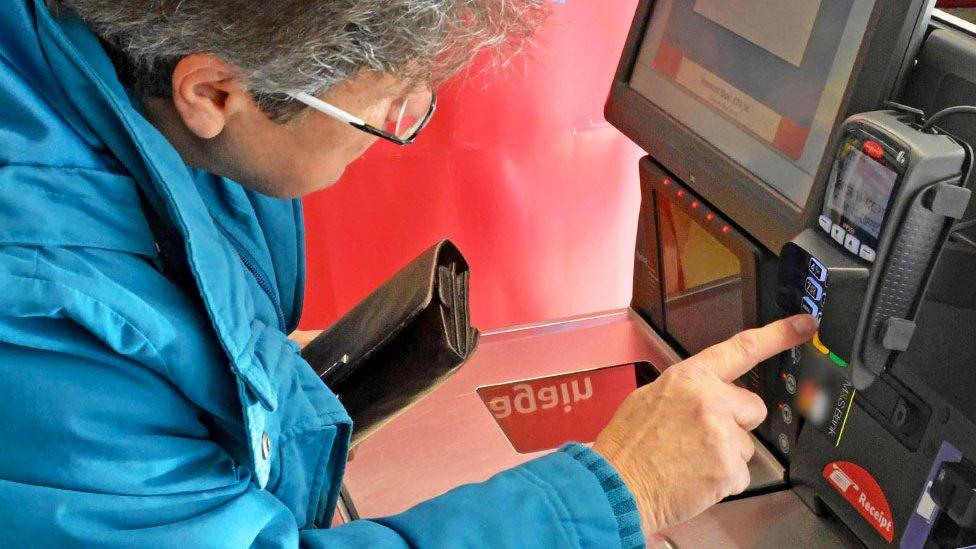
- Published4 January 2018